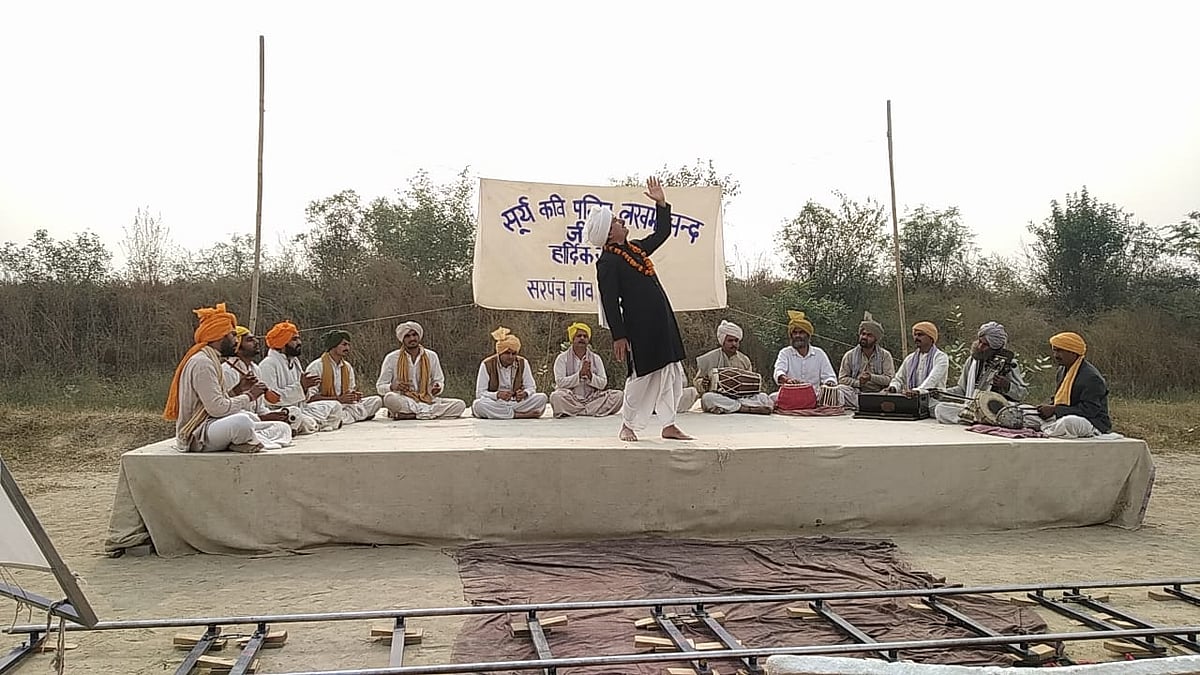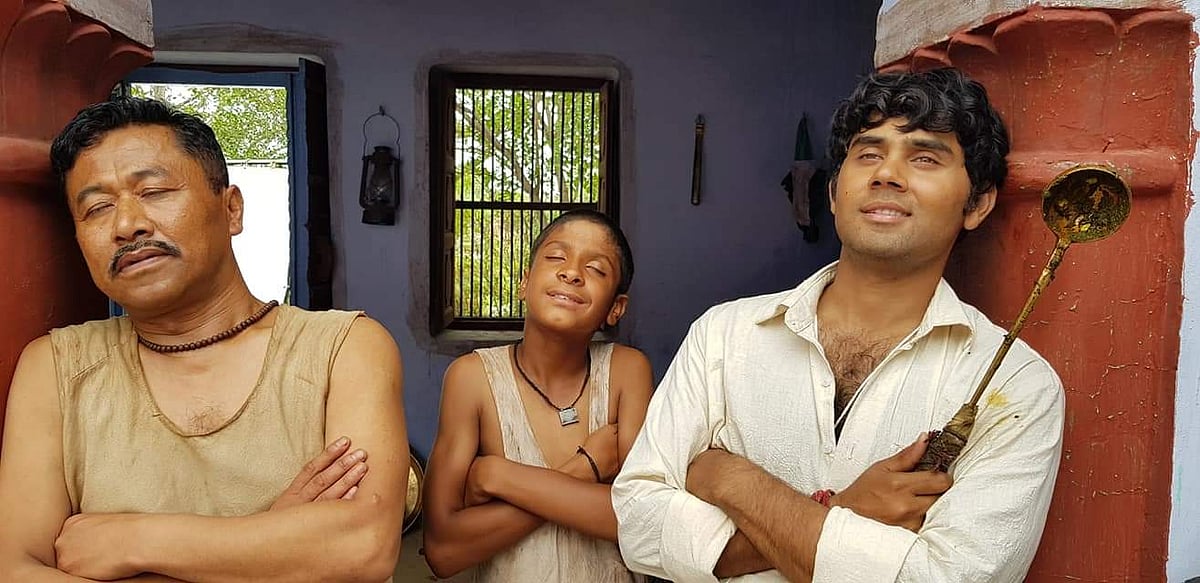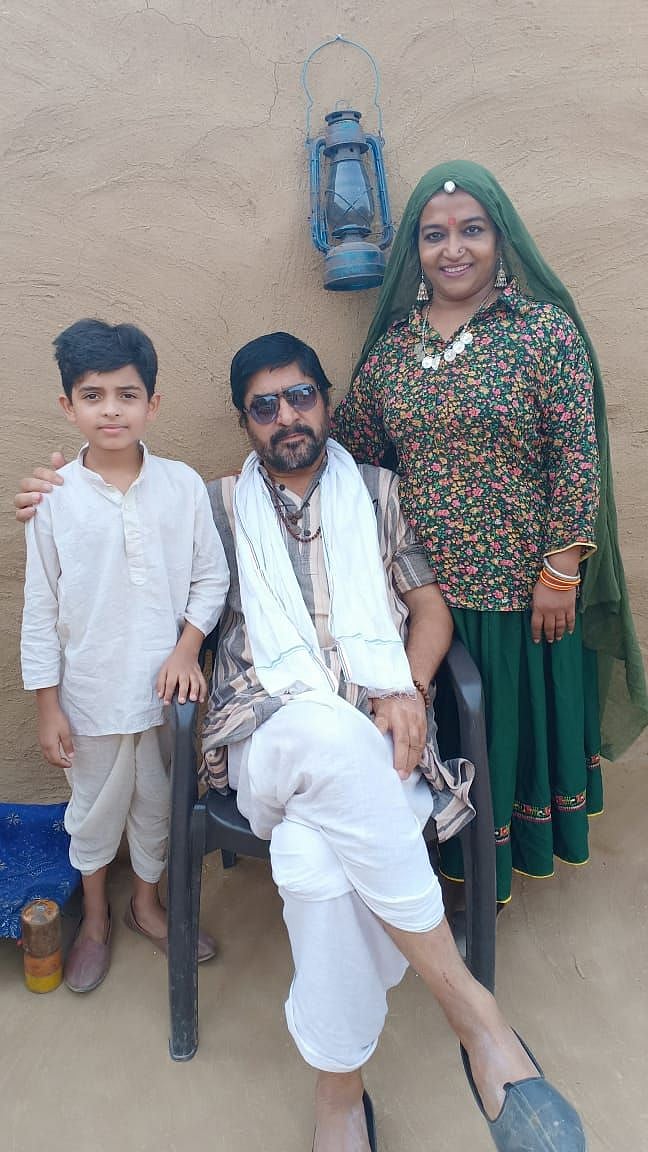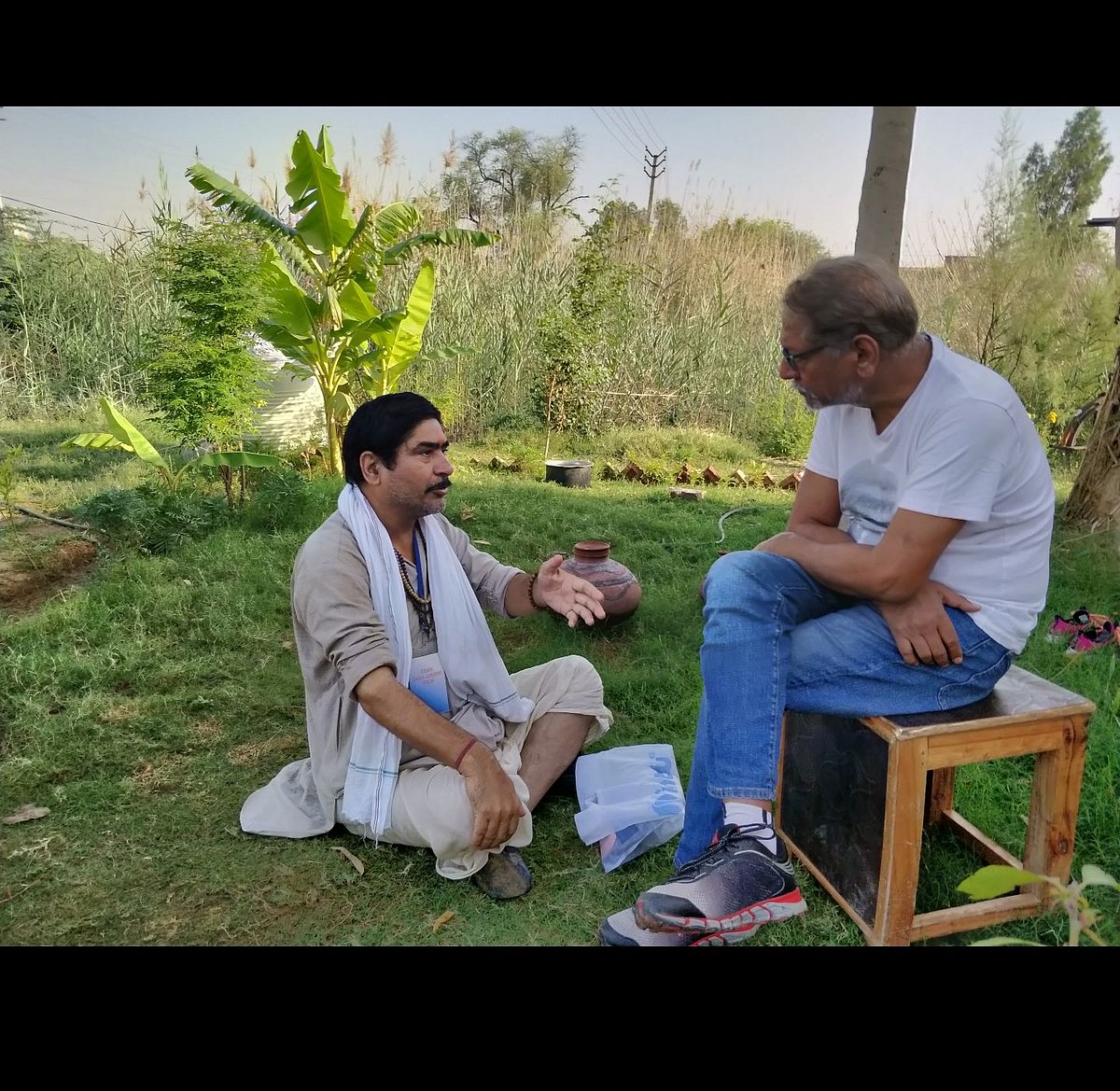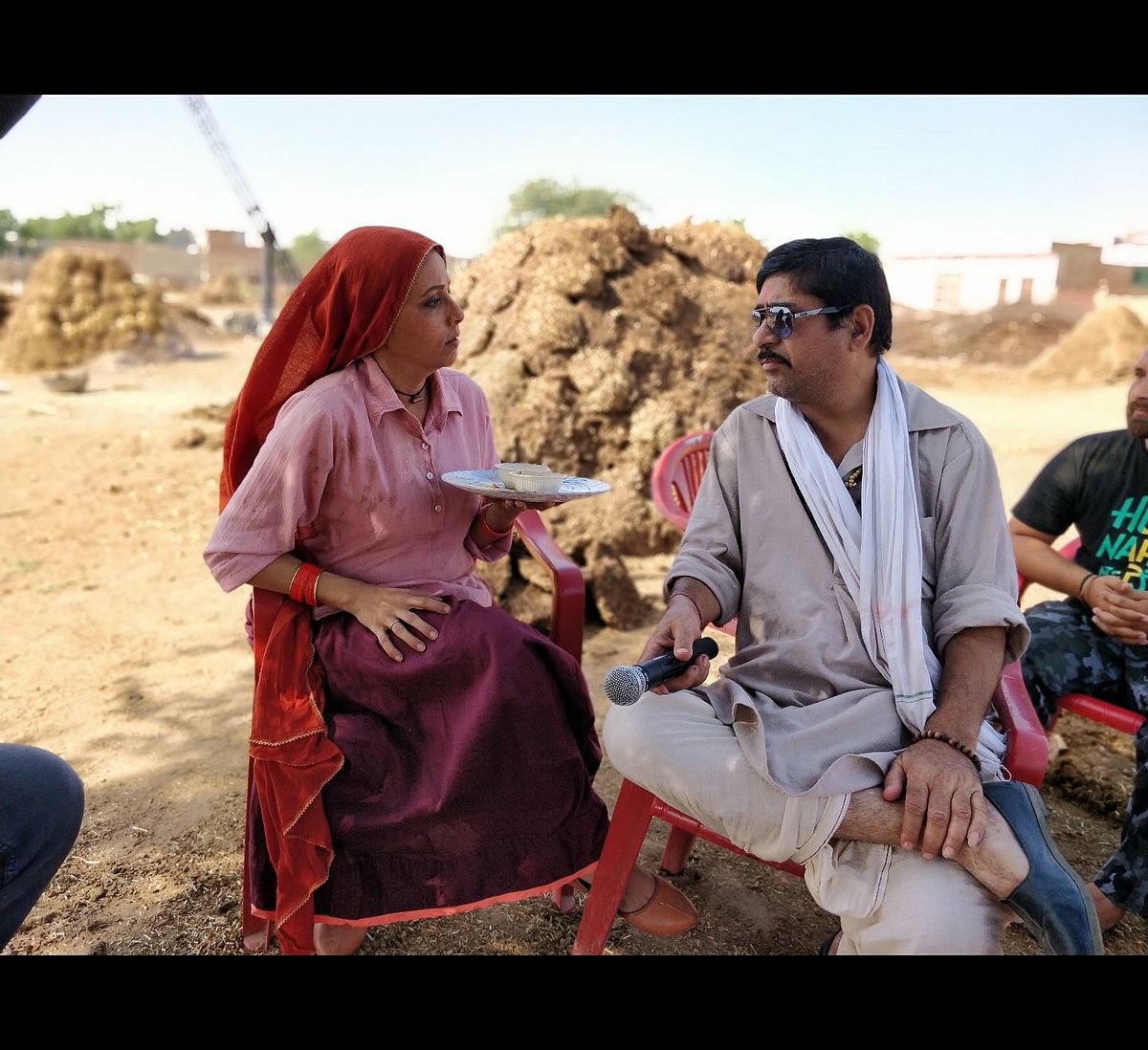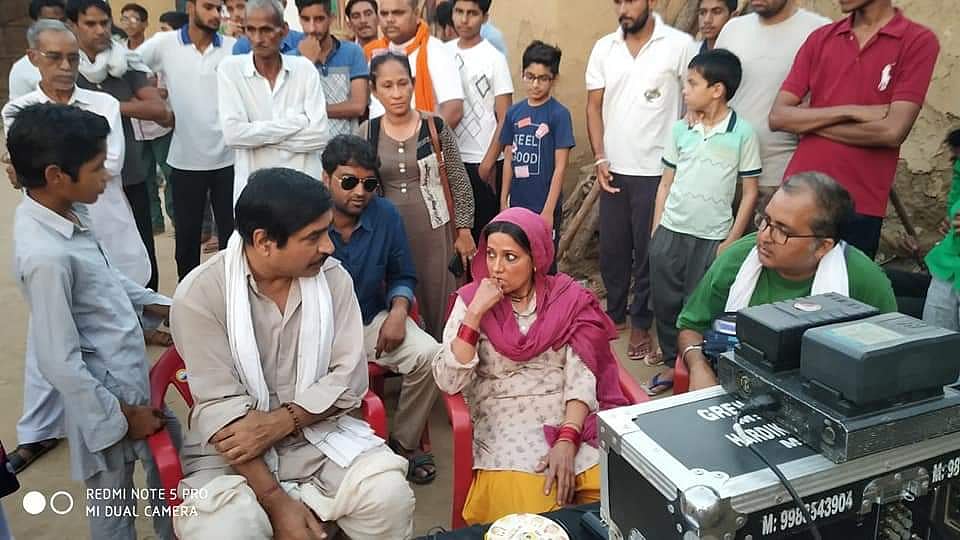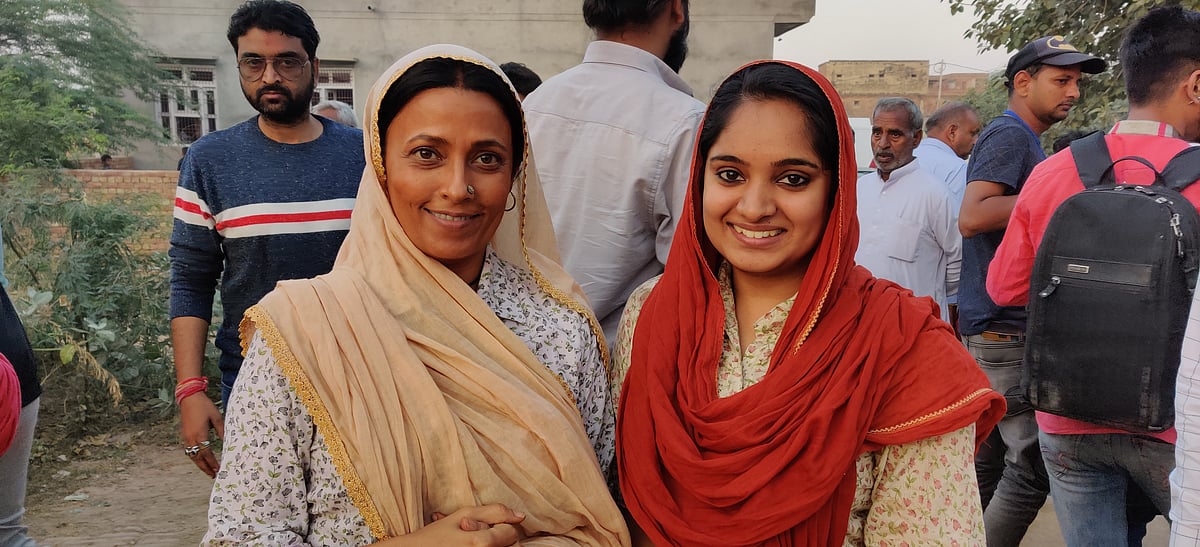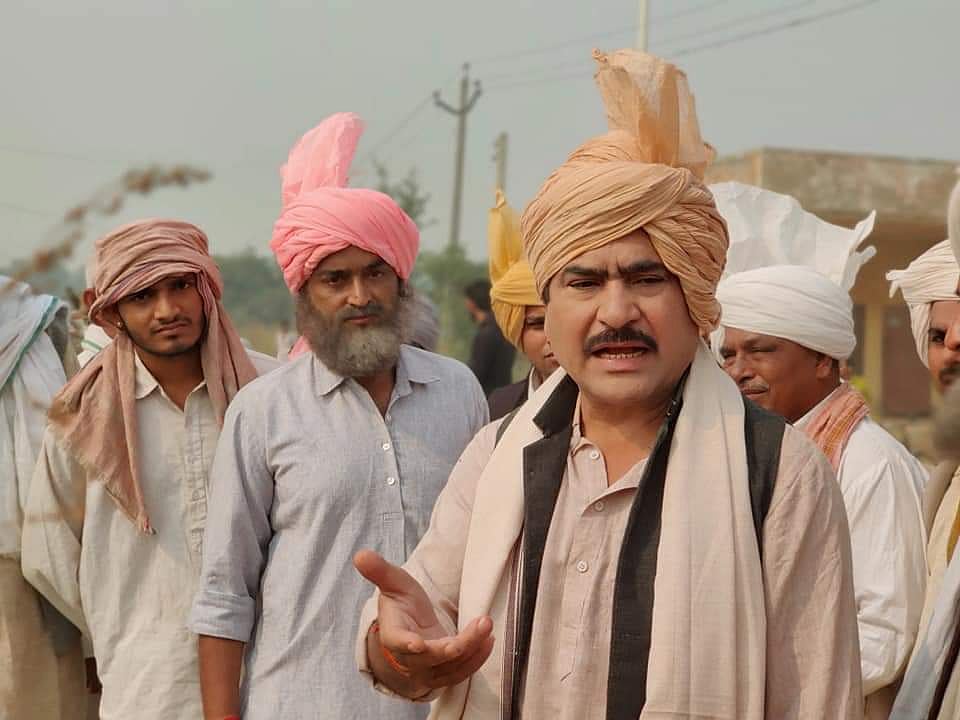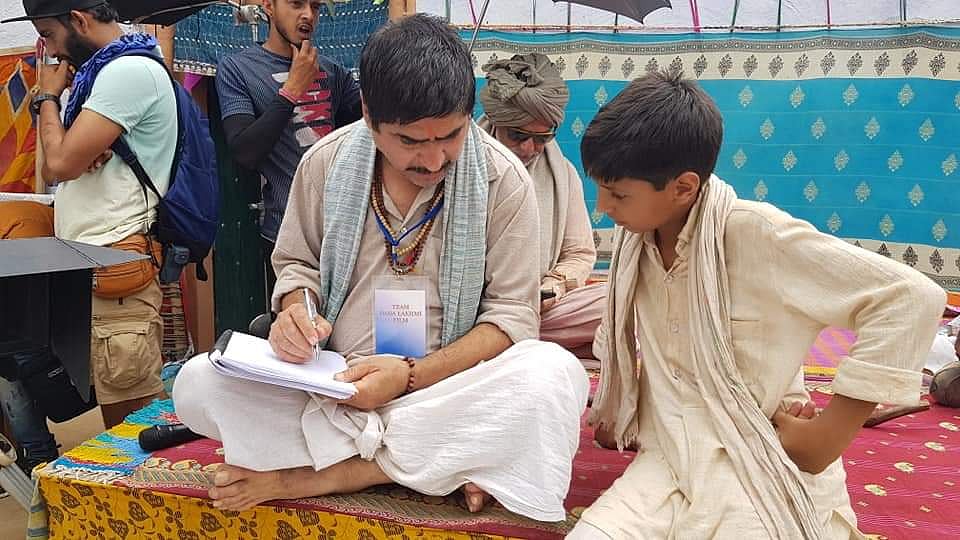‘Dada Lakhmi’: A poet gets a due, an actor proves it was long overdue!
The film is a heart-felt tribute to Dada Lakhmi, a fond name for the poet, philosopher, actor and director Pandit Lakhmi Chand who popularised the folk theatre of Haryana called Saang

If we leave some classic Hindi films from the 1940s to 60s, modern times saw very few, non-Bollywood films on arts and culture. ‘Dada Lakhmi’ directed and co-written by actor Yashpal Sharma attempts to film this gap and in no mean way. That way, he pays a tribute to his own home state, Haryana.
Dada Lakhmi is a fond name for poet, philosopher, seer, producer, actor, and director Pandit Lakhmi Chand who popularised the folk theatre of Haryana called Saang (swaang in Hindi). He hailed from Jatti Katmi, a hamlet of the state. The biopic on this legend born in 1903 and died at the young age of 42, maps his life from his birth to his death interwoven with his immense struggle to master the art, amid utter poverty and resistance from the family and the community.
With Dada Lakhmi, versatile actor Yashpal Sharma has debuted as director. Apart from Meghna Malik (plays Lakhmi’s mother) and Rajendra Gupta (blind Saang guru Maan Singh), he has picked up local untrained actors – from the child Lakhmi Chand (Yogesh Vats) to a young (Hitesh Sharma), his father Udhmi Singh (Mukhesh Musafir) while he himself plays the middle-aged poet.
The biopic adopts a back-n-forth technique to narrate the storyline. He deftly establishes his reputation and popularity during the pre-Partition days when he reaches his village to motivate people to fight the British and the people prefer his Saang to a political speech.
Within a short span, the film reveals the cause of his death, and his obsession with his art till the last breath. A circle completes much before the intermission in a two-and-half-hour feature film, followed by the inside view of this circle, that entwines the story of Lakhmi’s birth to his peculiar habits, a unique ear for music and beats as a toddler, a teenager with the hunger to learn the art and a young man’s strife to establish a mark of his own. All this, amid struggles worthy of note – from the poverty of poor peasant father to run a family of seven to Lakhmi’s disinterest in household responsibility but his art.
Particularly worthy of note is how Yashpal Sharma has defined each character to its full potential even if the role is as small as that of Rajendera Gupta and as big as that of the teenage and young Lakhmi, his parents. The untrained actors have outdone each other in every scene. Dedication to living the role impresses no end. It would be so unjustified to place anyone over the other. One wonders if one is watching a film or is sitting with the natives of this village living their lives.
Sharma’s choice to shoot at original dusty and nearly barren locations of Jatti Katni and other villages and take local non-actors and mould them, perhaps, has been his best decision. “I asked them not to act but just be natural” as Sharma had shared with me. This retains the local flavour of the semantics, body language and gestures, apart from the attire and jewellery, as much as humour, mischief, sarcasm and inhibitions. The script by Raju Mann and Sharma himself makes the story believable.
For a film to engage, every scene has to have some newness, some curiosity and unexpectedness. This has been taken care of. A good editing by veteran Aseem Sinha, therefore, saves the audience, a possible disinterest at places.
Film’s music is its strongest point. It ought to be; as the epic is a musical tribute to the bard. The film uses Saangs Lakhmi Dada has written. The fascinating music composed by Uttam Singh plays a significant role in establishing the lyricist’s charisma. The hard work to retain the local flavour of the folk theatre with the use of local instruments from iktara to sarangi, dholak to dhapli, nagada etc, is evident. I am particularly impressed with its local singers such as Shyam Kathuria, while a spiritual Saang is sung by famous actor-singer Raghuveer Yadav.
‘Dada Lakhmi’ is a befitting tribute to the local legend on whom nearly 20 books have already been written and research is still on.
Produced by Yashvidya Films, the film which was scheduled to release in theatres, was restricted to festivals in Mumbai, Delhi/Noida/Ghaziabad due to Covid-induced restrictions. However, now Sharma plans to take it to the viewers via a moving theatre called “cinema on wheels” – an air-conditioned auditorium van with limited seats.
Follow us on: Facebook, Twitter, Google News, Instagram
Join our official telegram channel (@nationalherald) and stay updated with the latest headlines

